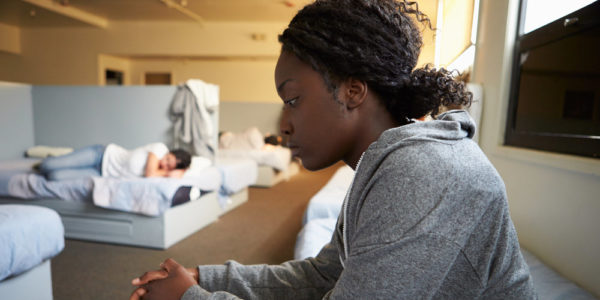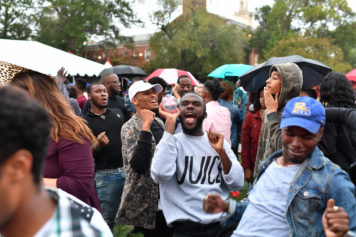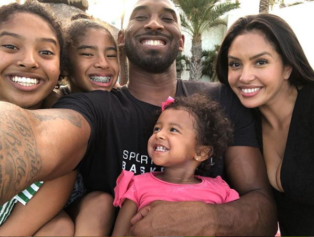It has been well-documented that the large-scale incarceration of Black men has become a scourge destroying Black families and communities all across the U.S. But for Black women, eviction has quietly become an extremely destructive force also wreaking havoc on Black families and Black communities. And after a woman is evicted once, it can follow her forever — just like a conviction. Landlords often say to prospective tenants, “I’ll rent to you as long as you don’t have an eviction or a conviction.” Together, they represent twin terrors leading to long-term damage to Black women and Black men. This list borrows heavily from a comprehensive study on the city of Milwaukee by the McArthur Foundation, which has been the seminal work in the field used by scholars and housing advocates to show for the first time the differential impact evictions have on men and women, Blacks and whites.
Black Women Most Likely to Be Evicted
In high-poverty Black neighborhoods, one male renter in 33 and one woman in 17 is evicted, according to a study released last year by the McArthur Foundation. In high-poverty white neighborhoods, in contrast, the ratio is 134:1 for men and 150:1 for women. Women from Black neighborhoods represented only 9.6 percent of the population, but they accounted for 30 percent of the evictions in Milwaukee, where McArthur researchers conducted a study. However startling, these statistics account only for court-ordered evictions. They do not include “informal” evictions, like using strong-arm tactics or paying unwanted tenants to move, housing condemnations, or landlord foreclosures.
Gender Plays a Role in Dealing with Male Landlords
As the McArthur Foundation fieldwork shows, the interaction between predominantly male landlords and female tenants is also a culprit and often turns on gender dynamics. Men who fell behind in rent, for example, often went directly to the landlord. Many women facing eviction instead took the nonconfrontational approach, what the landlords called engaging in “ducking and dodging.”




